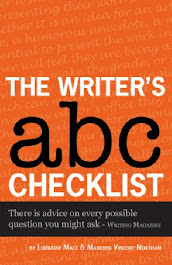
Douglas Jackson has had a lifelong interest in history and in particular the Roman era. His novels include the critically acclaimed Caligula, Claudius, and Hero of Rome.
WEBSITE -- BLOG
Douglas's books
Caligula (Roman Trilogy 1)
Claudius (Roman Trilogy 2)
Hero of Rome (Roman Trilogy 1)
Doug's author photo courtesy of Alex Hewitt/Writerpictures
What was the first thing you had published?
The first thing I ever had published was a one paragraph news story about a car crash two days after I’d joined my local newspaper, the Kelso Chronicle and Jedburgh Gazette. I walked along the street for my lunch and a car shot across the square and through a shop window. I didn’t know much about the legal niceties of such things in those days, but fortunately someone kept me from being up in front of the beak for contempt of court.
The first piece of literature I ever had published was my book, Caligula, which had gone through an earlier incarnation as The Emperor’s Elephant.

What are your writing strengths and weaknesses?
Being a writer you never really think in terms of strengths, but there are some things that come easier than others. I really enjoy conveying action and adventure; being at the centre of the big battle scenes in Claudius and Hero of Rome. The things I find most difficult are relationships and conveying human emotions. I always have to work very hard to get them right.
Do you have a writing routine or any odd writing quirks?
I try to get up and go straight to work. The reality is I’ll spend half an hour or an hour fiddling about on news websites, Facebook and Twitter and cursing myself for doing it. When I’m writing, rather than rewriting or editing, I aim to produce three thousand words a day and I’ll work as long as I need to hit the target.
Is there a special place you like to write?
Nowadays, I have a study, which is actually the spare bedroom, but I wrote Caligula and Claudius on the train between Bridge of Allan and Edinburgh.

Who is your favourite author and why?
John Le Carre, because he makes everything seem to effortless. He takes his reader through complex situations and the rawest of emotions, drawing them in and seducing them with the most beautiful prose in which not a word is wasted. He’s also versatile. He could have sat back after the Cold War ended and rested on his considerable laurels, but he took a look into the future and created a whole new career for himself. A master.
How do you handle the less-favourable reviews?
Strangely, the worst reviews are easier to take than the average ones. Unless the review contains some fair criticism, someone who really trashes your book is either just that way inclined, having a bad day or has an axe to grind. You can’t take it too seriously. Conversely, someone giving you a three star on Amazon was actually giving the book a chance, but found something in the writing, the plot or the narrative that they didn’t like. Those are the ones that make me really think.

How do you think you’d have fared living in Ancient Rome?
Not too well. If you weren’t born into privilege, you had to be a hustler or you didn’t have much of a chance. I’d like to think I could have been a well-loved, talented and cheerful scribe like Robert Harris’s Tiro.
What qualities do you think writers should have?
It goes without saying that they should have a peerless command of the English language, but I’ll say it anyway.
They should love words, sentences and paragraphs the way art lovers love Monet, Reubens or Picasso. They must be utterly committed and have the stamina to finish what they start.
What are you working on at the moment?
Right at this moment I’m reading my way back in to Avenger of Rome, the third in my Gaius Valerius Verrens trilogy, which now sits at 62,000 words, but had to be abandoned so I could do the edits on my debut thriller The Doomsday Testament.
What advice would you give to an aspiring novelist?
Persevere.
Douglas Jackson was talking to Maureen Vincent-Northam, co-author of The Writer's ABC Checklist
.































2 comments:
Another fine interview with the famous.
I remember reading early chapters of the Emperor's Elephant when it appeared on YWO.
You've come a long way since then, Doug, and you're to be congratulated. And now, real fame: appearing on Mo's blog. I'm awestruck.
Thanks David, me too. Discovering YWO was a milestone for me and I'll never forget the help and encouragement I got, and the savagings too. They made me understand what it was to be a writer.
Post a Comment